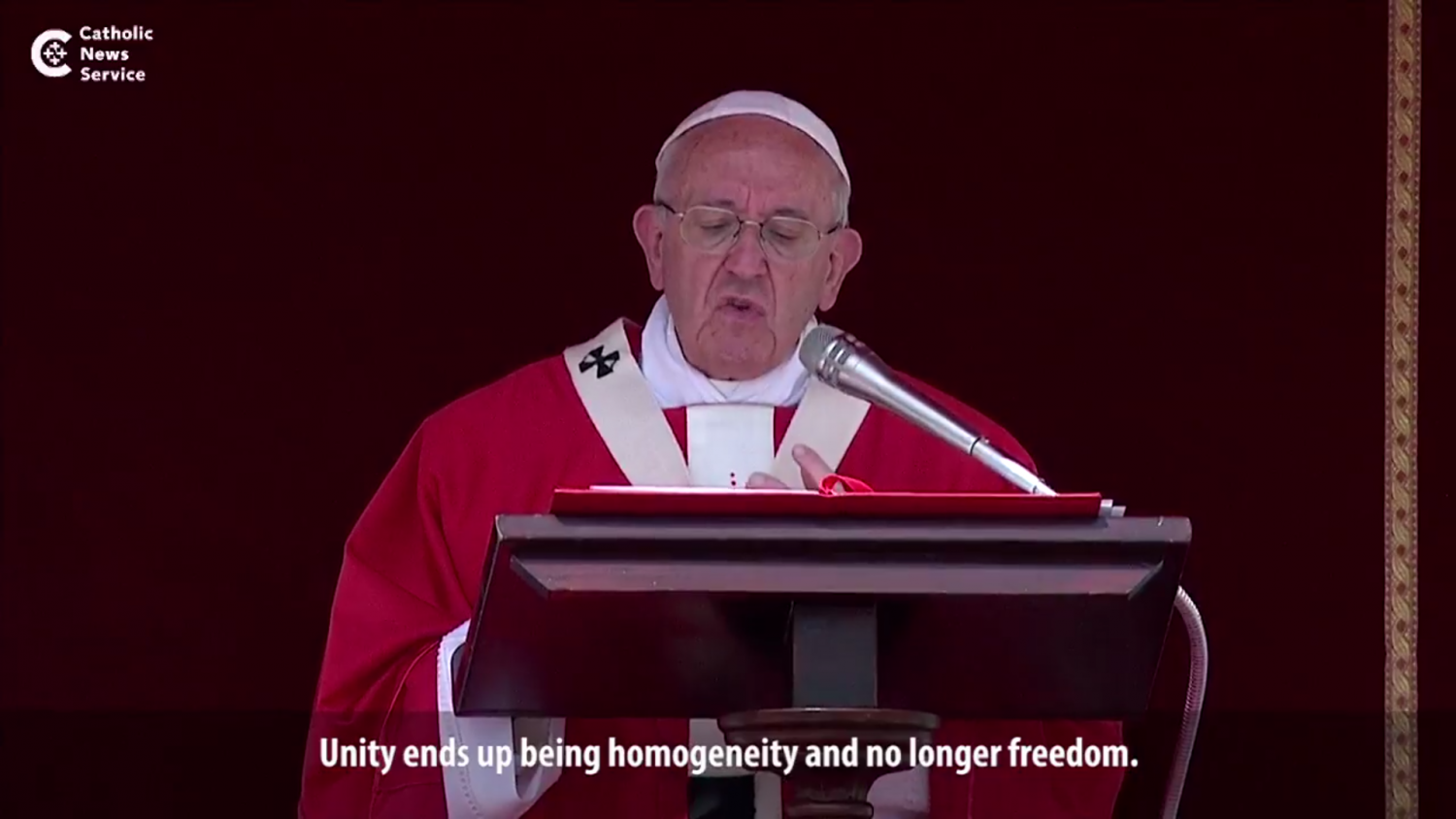The words that the sovereign Pontiff delivered yesterday, 4 June, in Saint Peter’s Square on Pentecost Sunday seemed to me to be very interesting. He addressed all Catholics and said:
“For this to happen, we need to avoid two recurrent temptations. The first temptation seeks diversity without unity. This happens when we want to separate, when we take sides and form parties, when we adopt rigid and airtight positions, when we become locked into our own ideas and ways of doing things, perhaps even thinking that we are better than others, or always in the right. When this happens, we choose the part over the whole, belonging to this or that group before belonging to the Church. We become avid supporters for one side, rather than brothers and sisters in the one Spirit. We become Christians of the “right” or the “left,” before being on the side of Jesus, unbending guardians of the past or the avant-garde of the future before being humble and grateful children of the Church. The result is diversity without unity. The opposite temptation is that of seeking unity without diversity. Here, unity becomes uniformity, where everyone has to do everything together and in the same way, always thinking alike. Unity ends up being homogeneity and no longer freedom.”
I thought that it would be easier to appreciate these words if one were to know some things that I somehow know per chance. Some of them are public, others are not. Those public things are: the decision not to respond in an open and factual dialogue to the requests for clarification, for example, like those presented by four cardinals, the dubia, and supported by many others: cardinals, bishops, simple priests, scholars and laymen, also by petitions and open letters. And instead of responding to them, [the pope is] describing them as rigid; and then there are all the other insults we have heard about in these last years. But then: rewarding only and always priests whose orientation goes into a certain direction, though questionable, with the nomination as a bishop, or even handing them the red hat; neglecting others, though they are deserving due to their holiness of life, fairness of conduct, and fervor of their works; or penalizing an entire bishops’ conference, judged to be too closely linked to the Church’s tradition.
Another piece of information I have knowledge of is confidential, but I feel that I have to report it. Such as the worldwide suggestion to avoid placing priests from certain ecclesial realities – considered too conservative – on the list of episcopal candidacies. Or even, in the case of some great episcopal conferences, the creation of a sort of prohibition list – of course not to be publicized – to exclude from consultations, meetings, and so on, a certain series of cardinals and bishops; and strictly to disallow any candidates for the episcopate they have proposed.
Here, in light of all this, a speciously beautiful exhortation of Pentecost Sunday sounds a bit strange to me. Although it is always possible – it seems to me hard to believe, though – that some operations are managed without the knowledge of the Pontiff, by the characters that gravitate in his power circle.
Translation: Maike Hickson
Originally published at Marcotosatti.com
